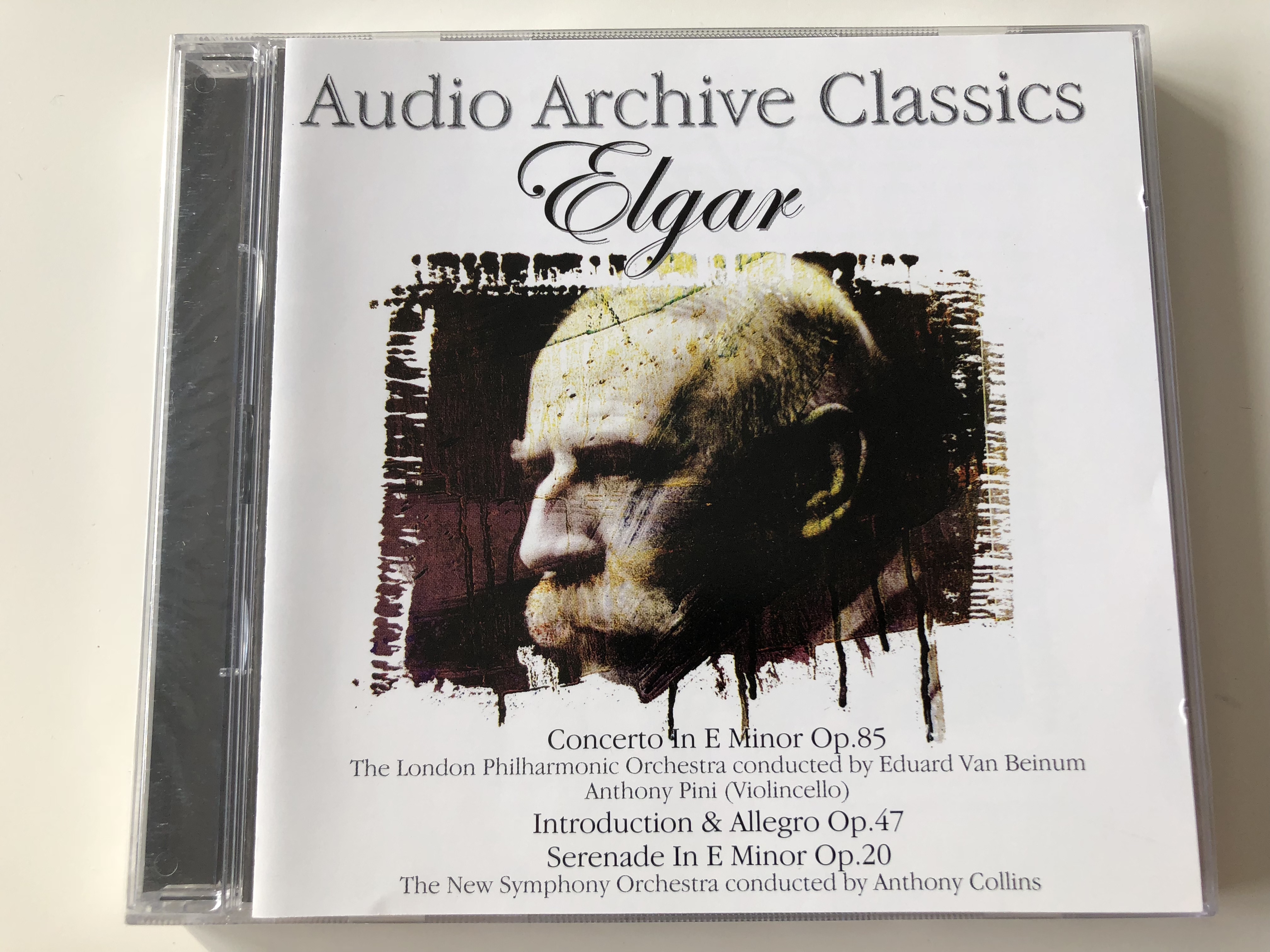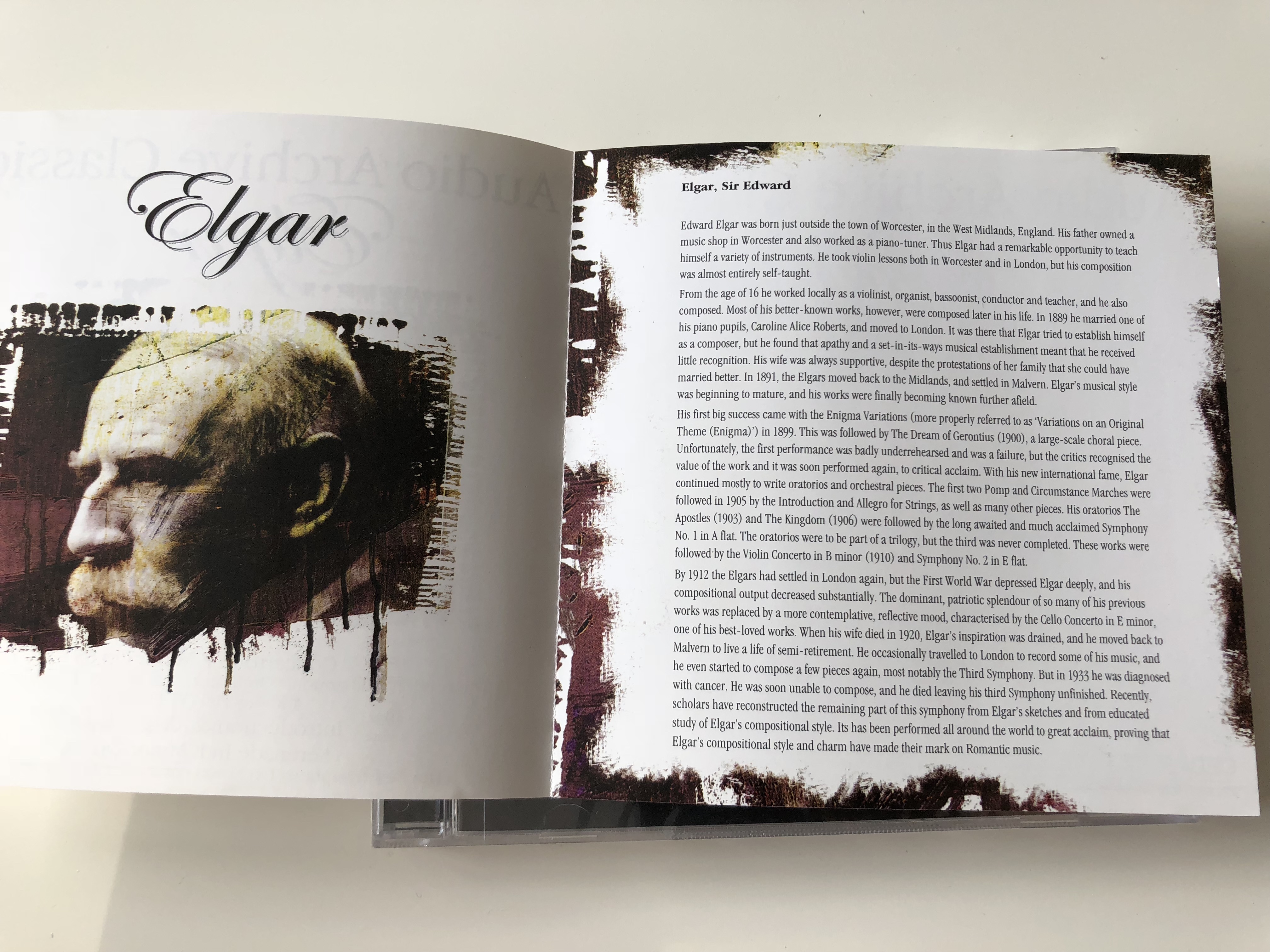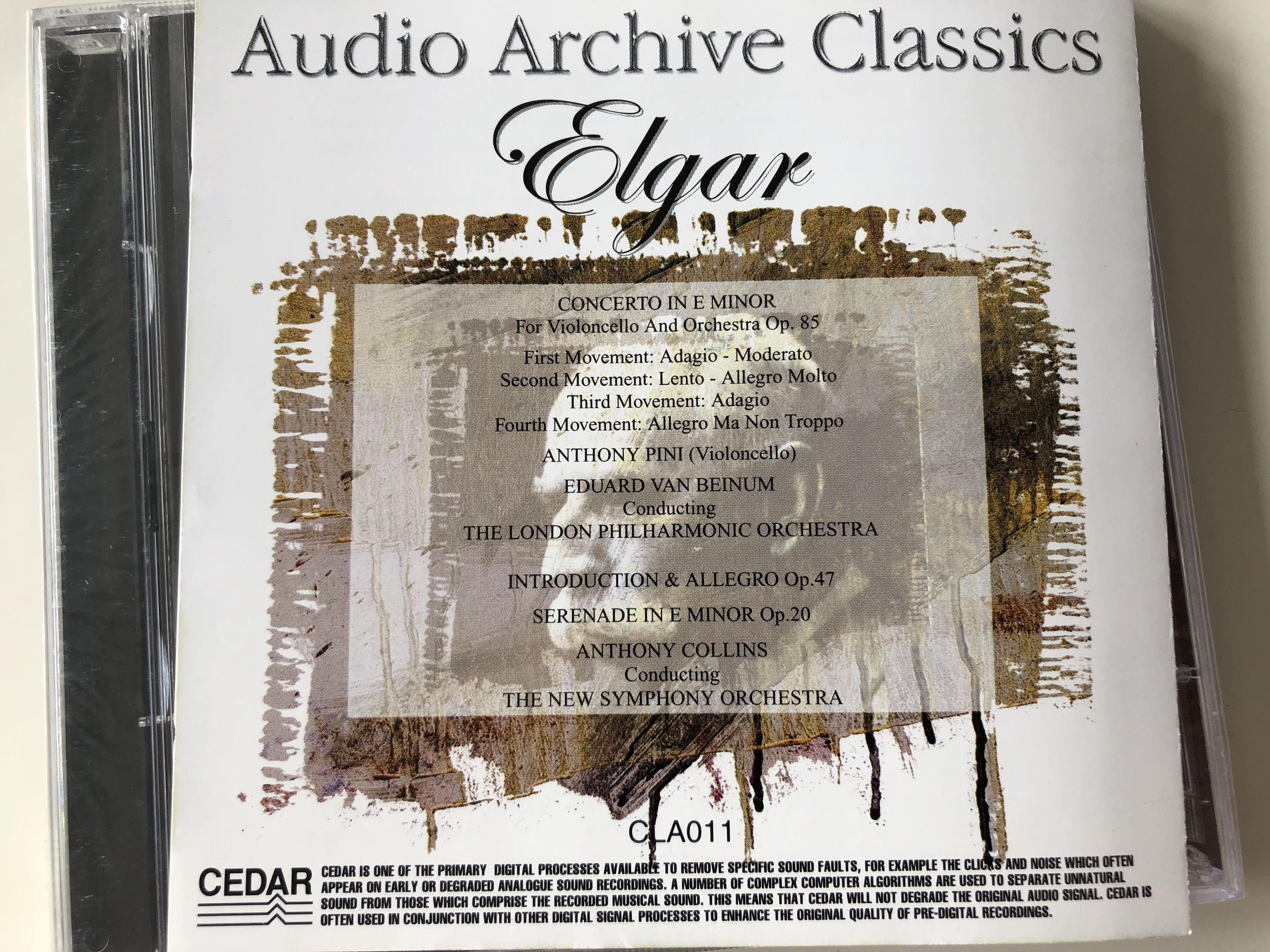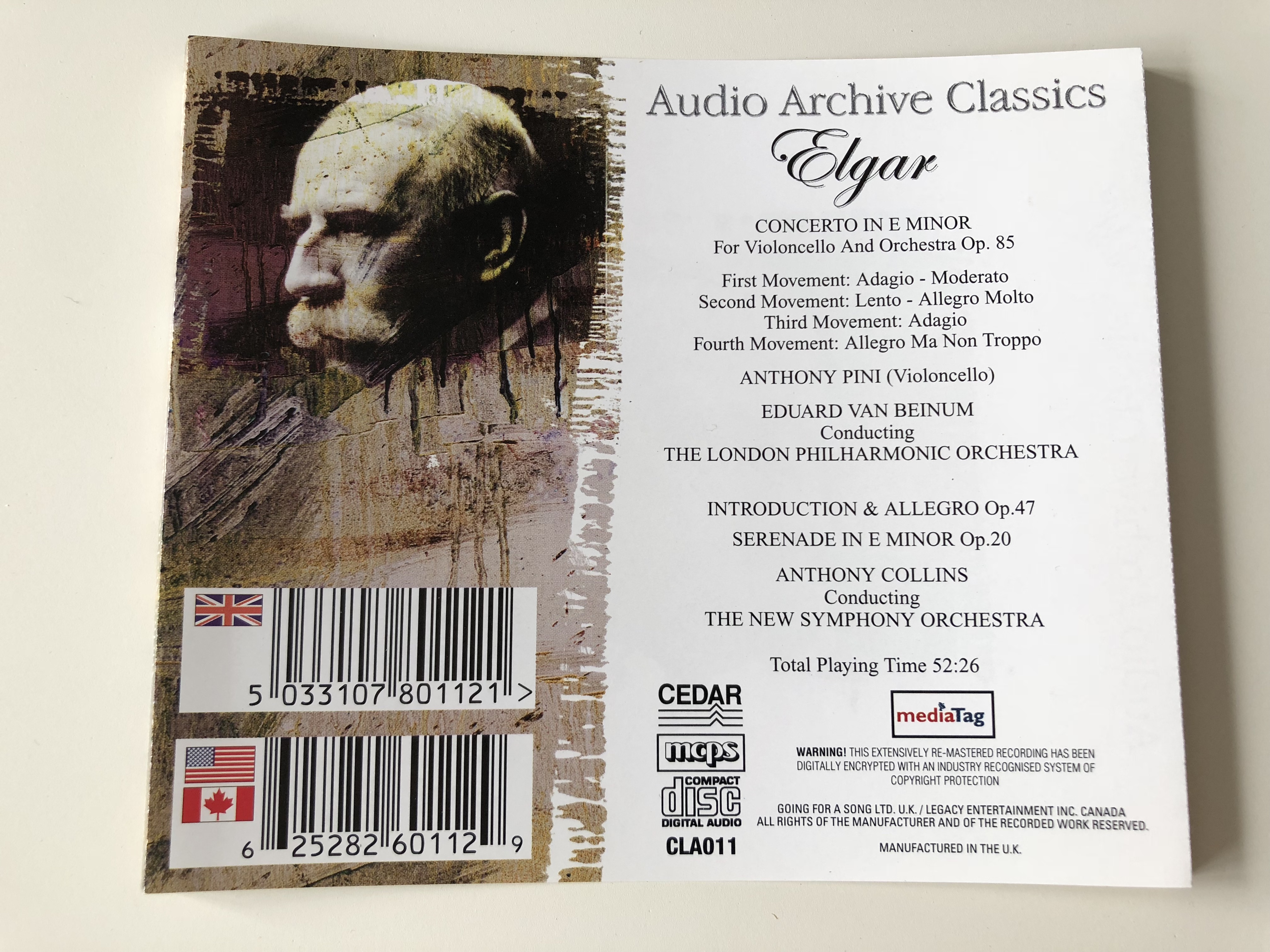Product Overview
Audio Archive Classics: Elgar / Sir Edward William Elgar
Anthony Pini (cello)
London Philharmonic Orchestra
Eduard Van Beinum (conductor)
CLA011
UPC 5033107801121 / 625282601129
Total Playing Time: 52:26
Made in U.K.
Converto in e Minor
For Violoncello And Ochestra Op. 85
First Movement: Adagido . Moderato
Second Movement: Lengto - Allergro Molto
Third Movement: Agadio
Fourth Movement: Allegro Ma Non Troppo
ANTHONY PINI ( Violoncello)
Eduard Van Benium
Conducting
The London Philharmonic Orchestra
Introduction & allegro Op. 47
Serenade in e minor Op. 20
Anthony Colling
Conducting
The New Symphony Orchestra




Sir Edward William Elgar, 1st Baronet OM GCVO (/ˈɛlɡɑːr/; 2 June 1857 – 23 February 1934) was an English composer, many of whose works have entered the British and international classical concert repertoire. Among his best-known compositions are orchestral works including the Enigma Variations, the Pomp and Circumstance Marches, concertos for violin and cello, and two symphonies. He also composed choral works, including The Dream of Gerontius, chamber music and songs. He was appointed Master of the King's Musick in 1924.
Although Elgar is often regarded as a typically English composer, most of his musical influences were not from England but from continental Europe. He felt himself to be an outsider, not only musically, but socially. In musical circles dominated by academics, he was a self-taught composer; in Protestant Britain, his Roman Catholicism was regarded with suspicion in some quarters; and in the class-conscious society of Victorian and Edwardian Britain, he was acutely sensitive about his humble origins even after he achieved recognition. He nevertheless married the daughter of a senior British army officer. She inspired him both musically and socially, but he struggled to achieve success until his forties, when after a series of moderately successful works his Enigma Variations (1899) became immediately popular in Britain and overseas. He followed the Variations with a choral work, The Dream of Gerontius (1900), based on a Roman Catholic text that caused some disquiet in the Anglicanestablishment in Britain, but it became, and has remained, a core repertory work in Britain and elsewhere. His later full-length religious choral works were well received but have not entered the regular repertory.
In his fifties, Elgar composed a symphony and a violin concerto that were immensely successful. His second symphony and his cello concerto did not gain immediate public popularity and took many years to achieve a regular place in the concert repertory of British orchestras. Elgar's music came, in his later years, to be seen as appealing chiefly to British audiences. His stock remained low for a generation after his death. It began to revive significantly in the 1960s, helped by new recordings of his works. Some of his works have, in recent years, been taken up again internationally, but the music continues to be played more in Britain than elsewhere.
Elgar has been described as the first composer to take the gramophone seriously. Between 1914 and 1925, he conducted a series of acoustic recordings of his works. The introduction of the moving-coil microphone in 1923 made far more accurate sound reproduction possible, and Elgar made new recordings of most of his major orchestral works and excerpts from The Dream of Gerontius.










